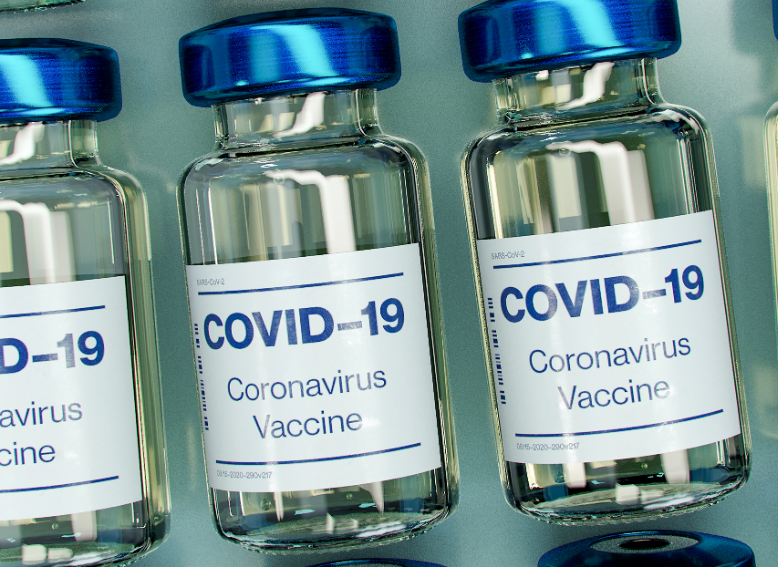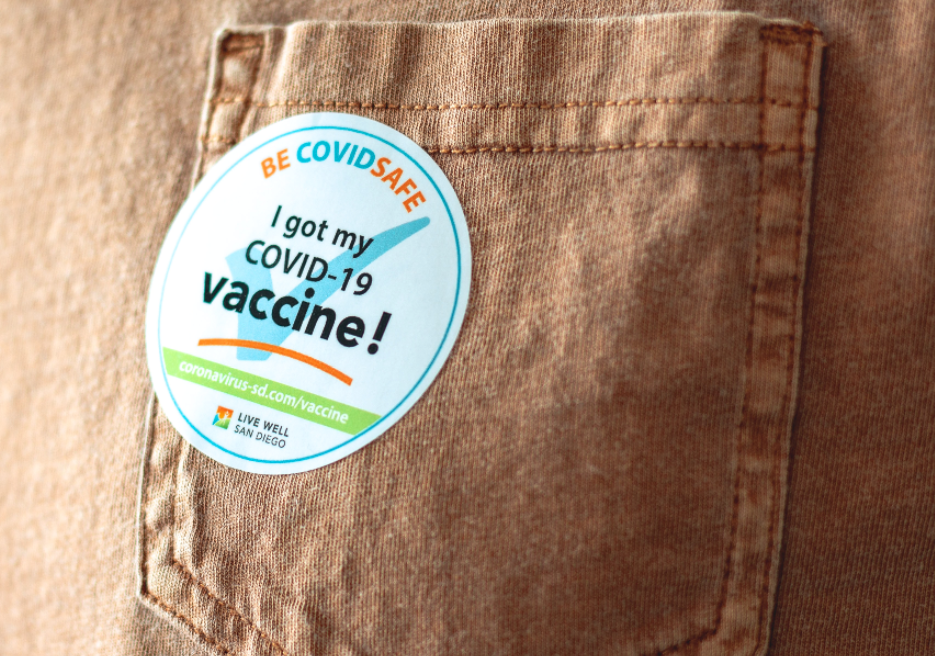Home > Responding to COVID-19
Public health emergencies such as COVID-19 have a significant impact on people with mental illness, their families, and caregivers; the mental health workforce; and the mental health treatment system. They also cause stress and anxiety across the population.
Here we highlight MHTTC products and resources that can be useful when coping with the effects of widespread public health crises. A compilation of resources from other reputable organizations is also available below.
If you are interested in other resources related to COVID-19, please also see the following pages for these topics:

People with mental illness, especially severe mental illness, are at higher risk for worse COVID-19 outcomes. The following events and resources support discussing COVID-19 vaccines with patients.

Ask a Peer: COVID-19 Vaccine Q&A for Youth and Families | New England MHTTC
Young people who have experienced psychosis and their families may have unanswered questions about the COVID-19 vaccine. With walk-in vaccine appointments now available across Massachusetts, this panel of early psychosis peer specialists and local vaccine experts are here to share their experiences. Join the New England MHTTC for a presentation and open conversation on the COVID-19 vaccine, equity, and mental health.

Motivational Interviewing for COVID-19 Vaccine Hesitancy | New England MHTTC
There are enough COVID-19 vaccines for everyone in the United States, but some people aren't quite sure yet if they are ready to get one. Dr. Emily Kline will teach you to use skills from an evidence-based approach called motivational interviewing to have more successful conversations about COVID-19 vaccines in this webinar.

Administration for Community Living
Strategies for Helping Older Adults and People with Disabilities Access COVID-19 Vaccines
African American Behavioral Health - Center of Excellence
American Psychiatric Association
Guidance Document: The Role of Psychiatrists in the Equitable Distribution of the COVID-19 Vaccine
COVID-19 Vaccination Strategies in Public Psychiatry
American Psychological Association
Building Vaccine Confidence Through Community Engagement
American Society of Addiction Medicine
COVID-19 Vaccination and Addiction Treatment
Centers for Disease Control and Prevention
Answering Patients’ Questions About COVID-19 Vaccine and Vaccination
COVID-19 Vaccine Community Toolkit
How to talk to your patients about COVID-19 vaccination
National Forum on COVID-19 Vaccine
Department of Health and Human Services
Confronting COVID-19 Vaccine Misinformation
COVID-19 Public Education Campaign
Institute for Healthcare Improvement
COVID-19 Vaccines: Questions and Concerns to Anticipate
Kaiser Family Foundation
Latest Data on COVID-19 Vaccinations by Race/Ethnicity
Johns Hopkins Urban Health Institute
Community Forum with Dr. Kizzmekia Corbett: Everything You Should Know About the COVID-19 Vaccines
Mental Health America
Coping with COVID-19 Vaccine Anxiety
Dealing with COVID-19 Vaccine Anxiety
Missouri Department of Health and Senior Services
National Academies of Sciences, Engineering, and Medicine
Understanding and Communicating about COVID-19 Vaccine Efficacy, Effectiveness, and Equity
National Alliance on Mental Illness
COVID-19 Resource and Information Guide
Live Radio Show Discussing the Vaccine and the Impact of the Pandemic on Mental Health
Vaccine Science: A History of Distrust and Discrimination for People with Mental Illness
National Association of Social Workers
Social Workers and the COVID-19 Vaccine
National Association of State Mental Health Program Directors
The COVID-19 Vaccination and Mental Illness: Communication and Misinformation
National Council for Behavioral Health
National Council for Mental Wellbeing
COVID-19 Vaccine Webinar Series - 1
COVID-19 Vaccine Webinar Series - 2
National Training & Technical Assistance Center for Child, Youth, Family Mental Health
Clinical Practice & Health Care: 5 Things to know right now about vaccines for COVID-19 (Feb 2021)
Office of Minority Health Resource Center
Office on Women's Health - U.S Department of Health and Human Services
Sex Differences in Vaccine Immune Response
Rural Health Information Hub
COVID-19 Vaccination in Rural Areas
SMI Adviser
How to Talk About the COVID-19 Vaccines with Individuals Who Have Serious Mental Illness (SMI)
Administration for Children and Families (ACF): ACF Native American COVID-19 Resources
CDC: Coping With a Disaster or Traumatic Event
CDC: Know the Facts About Coronavirus Disease 2019 (COVID-19) and Help Stop the Spread of Rumors
CDC: Mental Health and Coping During COVID-19
CDC: Self Care During an Emergency
DTAC: Feeling Stressed or Anxious About the COVID-19 Pandemic?
DTAC: Tips for Managing Stress During the COVID-19 Pandemic Wallet Card
NCTSN: Coping in Hard Times: Fact Sheet for Community Organizations and Leaders
NCTSN: Skills for Psychological Recovery (SPR) Online
NIMH Livestream Event: Suicide Prevention Strategies - September 23, 11-11:30am PT / 2-2:30pm ET
SAMHSA: Coping With Stress During Infectious Disease Outbreaks(English)/(Spanish)
SAMHSA: Taking Care of Your Behavioral Health During and Infectious Disease Outbreak (English)/(Spanish)
Action Alliance for Suicide Prevention: COVID-19 Messaging Guidance Page
Americares: Resources for Clinics and Health Workers in a Global Pandemic
American Psychological Association: COVID-19: Is it legal to treat clients in another state?
Mountain Plains MHTTC: Housing and Homelessness Resources: COVID-19
NCEED: Eating Disorders and COVID-19: What Healthcare Providers Need to Know
NCTSN: The Impact of COVID-19 on Child Sex and Labor Trafficking
SAMHSA: COVID-19 Public Health Emergency Response and 42 CFR Part 2 Guidance
SAMHSA: National Guidelines for Mental Health Crisis Care: A Best Practices Toolkit
SAMHSA: Intimate Partner Violence and Child Abuse Considerations During COVID-19
SMI Adviser: Resources on COVID-19 and Serious Mental Illness
Suicide Prevention Resource Center: COVID-19 Resource Page
CDC: Coping After a Disaster – A Ready Wrigley activity book for children age 3-10
CDC: Helping Children Cope with Emergencies
NCEED: Eating Disorders and COVID-19: What Individuals and Families/Caregivers Need to Know
NCTSN: Age-Related Reactions to a Traumatic Event
NCTSN: Coping in Hard Times: Fact Sheet for Parents
NCTSN: Coping in Hard Times: Fact Sheet for Youth High School and College Age
NCTSN: PFA: Parent Tips for Helping Adolescents
NCTSN: PFA: Parent Tips for Helping Infants and Toddlers after Disasters
NCTSN: PFA: Parent Tips for Preschool-Age Children after Disasters
NCTSN: Simple Activities for Children and Adolescents
NCTSN: Supporting Children During Coronavirus (COVID19)
SAMHSA: Talking With Children: Tips for Caregivers, Parents, and Teachers During Infectious Disease Outbreaks (English)/(Spanish)
DTAC: Are You Working to Help People Affected by the COVID-19 Pandemic?
NCTSN: Psychological First Aid (PFA) Online
NCTSN: PFA Mobile (Available for iOS and Android)
NCTSN: Strengthening Your Resilience: Take Care of Yourself as You Care for Others
NCTSN: Working Together in the Pandemic: Tips for Front-Line Juvenile Justice Staff
NCTSN: Working Together in the Pandemic: Tips for Supporting Youth and Families in a Time of Crisis
SAMHSA: Emergency Responders: Tips for taking care of yourself
SAMHSA’s Disaster Distress Helpline is standing by 24/7 to support you during the pandemic & beyond. Toll-free, multilingual, & confidential support services are available to all residents in the U.S. & its territories. Call 1-800-985-5990 or text TalkWithUs to 66746 to connect with a trained counselor.